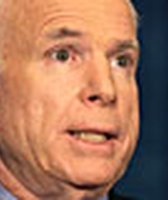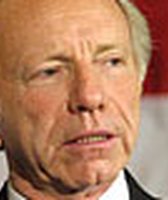Stand up for the facts!
Our only agenda is to publish the truth so you can be an informed participant in democracy.
We need your help.
I would like to contribute
SUMMARY: Sen. John McCain's new health care plan brings the subject back in focus for our presidential candidates. We check three new claims.
The presidential candidates are devoting more attention to health care, offering divergent views about what ails the U.S. health system and how the government should respond.
In April 2008, presumptive Republican nominee Sen. John McCain got in the game by announcing his plan for fixing the nation's heath care problems. McCain contends rising health costs are making coverage too expensive for individuals, employers and the government. He would shift primary responsibility for buying health insurance to consumers, in the belief that hospitals, doctors and other providers will compete on price and service for these individuals' business. Beyond this push toward "consumer-driven care," McCain also would emphasize preventive tests, better coordination of care and innovations like electronic health records.
With the renewed attention on health care, we examine three new claims:
• In an April 28, 2008, speech at a children's hospital in Miami, McCain lamented the fact that health care inflation is gobbling up ever-bigger shares of the economy. "We spend a staggering amount of money on health care – over $2-trillion and almost twice as much as any other country per person. Within the decade total health care spending will more than double and consume nearly one out of every five dollars in America," McCain said.
McCain correctly sizes up the scope of the spending, but he exaggerates the U.S. rank among other nations. It's true the United States spends substantially more than other developed nations on health care — its $6,401 per capita figure in U.S. dollars is as much as 90 percent more than other countries it would consider global competitors. But Luxembourg, Norway, Switzerland, Austria, Iceland, Belgium, France, Canada and Germany all had per capita spending that was more than half of the U.S. figure, according to an analysis by the Organization for Economic Cooperation and Development. We find his statement to be Half True.
• On April 29, 2008, moments after McCain fleshed out details of his health care plan, opponents were lining up to poke holes in it. One criticism: McCain is willing to spend billions on the war in Iraq but not to help cover the 47-million Americans who don't have health insurance. The plan shows McCain's mixed-up priorities, contends Bill Newton, executive director of the Florida Consumer Action Network. "For what we spend in just one week in Iraq, 800,000 children could get health insurance for an entire year," Newton said. Newton's point is accurate, but his numbers are significantly understated. In fact, one week of war spending in Iraq would insure more than twice as many children. We rate the claim Mostly True.
• Sen. Barack Obama, chastising McCain for recent depictions of President Bush's tenure as a time of economic growth, enumerates all that has gone wrong over the past 7 years, beginning with the growing population of uninsured Americans. "More people without health care since George Bush took office; more children in poverty since George Bush took office," Obama said during an April 18, 2008, speech in Williamsport, Pa. We find Obama is correct in asserting that the ranks of the uninsured have increased since 2000, and that there are more children in poverty. However, it's difficult to pin the increase entirely on Bush administration policies because the phenomenon is symptomatic of broader trends in the marketplace. Nonetheless, Obama's statement is Mostly True.







































